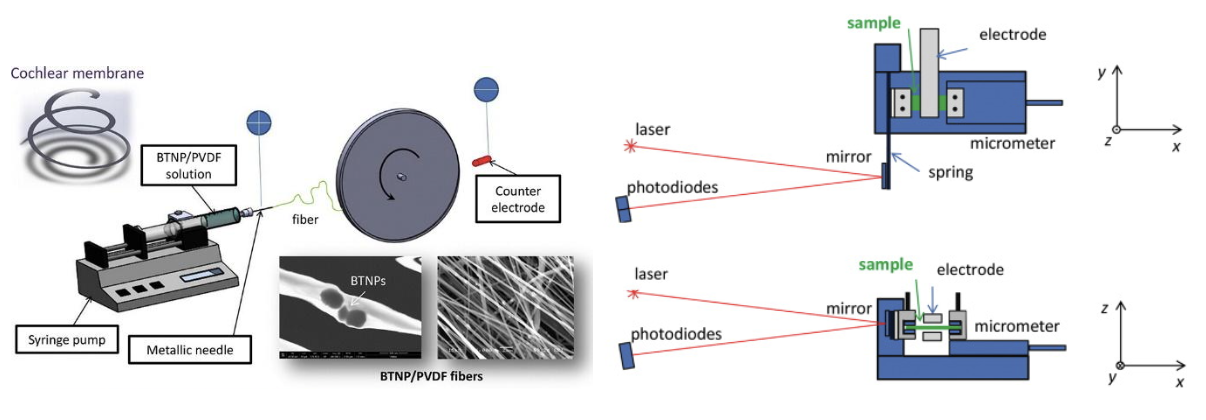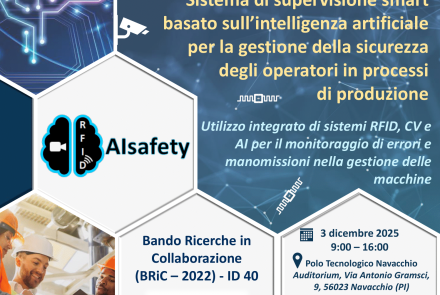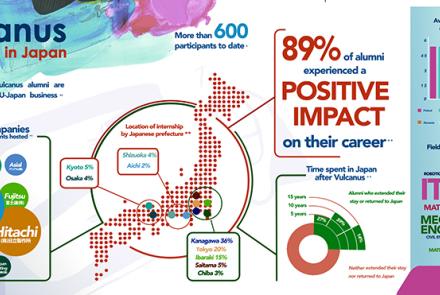Research topics range from materials chemistry to materials science and engineering and bioengineering, disciplines that are strongly integrated with each other. The research activities addressed are placed in strategic and innovative areas such as: nanotechnologies, biotechnologies, materials from renewable sources and circular economy.
In particular, the activities carried out include the design and synthesis of materials, production and transformation processes, characterization, and modelling of chemical-physical properties of materials according to their final applications, modification techniques, with particular reference to the micro and nanostructuring, and the use of functional materials for manufacturing industry, the environment, energy and health.
These activities respond to the current innovation and sustainability requests in the field of materials in large sectors of environmental, technological, economic and social impact, as the sector of bioplastics, materials for microelectronics, for energy, for construction, durability and cultural heritage, and for life sciences and technology, including biomaterials, smart scaffolds for tissue engineering strategies and drug delivery materials.
The area supports the Master's Degree course in Materials and Nanotechnology which, thanks to a markedly interdisciplinary scientific approach, aims to train experts in the field of materials and technologies for production and transformation of both structural materials (metallic, ceramic, polymeric and composites), and functional ones (advanced materials for micromechanical, electronic and biomedical industry).
Main Research Topics
- Processing and characterization of polymer blends, polymer-matrix composites and sustainable
biopolymers/biocomposites
- Processing and characterization of ceramic-matrix composites
- Micromechanical modelling of damage and fracture processes of materials
- Materials from renewable resources
- Bituminous materials with additives
- Biomaterials and Tissue Engineering
- Particle systems for the controlled release of active agents
- Dosimetry and biodosimetry for ionizing radiation
Design, processing and thermo-mechanical characterization of polymeric and biopolymeric eco-compatible materials
In this research line the starting point is tuning the extrusion processing parameters (also through the aid of simulation softwares and DOEs) to achieve polymeric and biopolymeric blends, studying also recycling process, how nucleating agents can modify the crystallinity of biopolymers and how additives can influence the final morphology. Investigations are carried out also on reactive extrusion and studies of blends compatibilization.
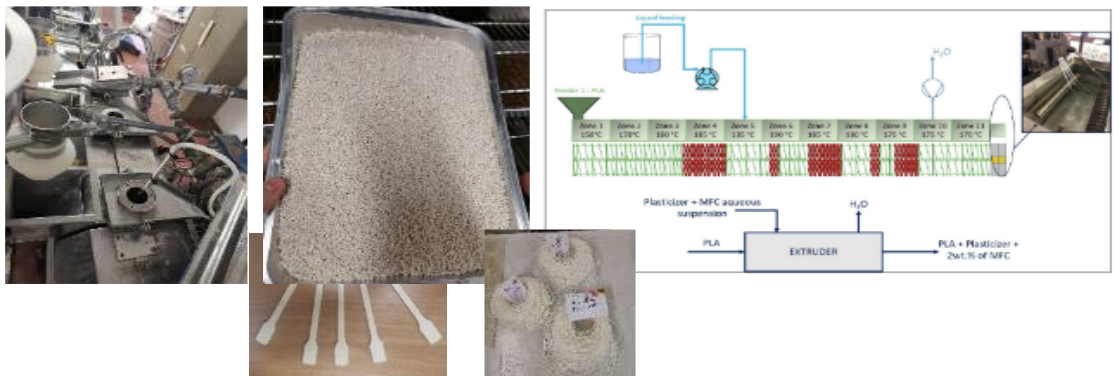
Design, production and thermo-mechanical characterization of biocomposites
By careful studying the achievement of biocomposites with a uniform distribution of agro-wastes, fillers and natural fibres (the dispersed phase) into the polymeric matrix, the objective is to overcome the current gap in performances between traditional plastic and sustainable (biobased, bio-recyclable, etc.) desirable solutions through tailored theoretical analysis followed by an efficient experimental work from cradle to grave.
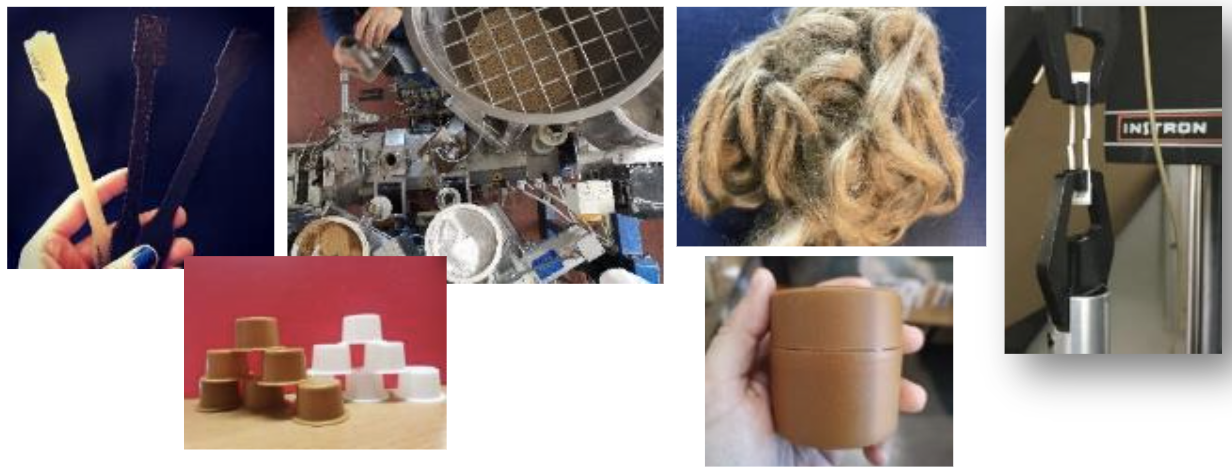
Analysis and micromechanical modelling of fracture
The aim of this research activity is to understand and control, by careful processing, structure properties relations in polymers and composites with interests to toughening, interphase adhesion, micromechanical deformation processes, fracture mechanics and micro- and macro-mechanical modelling.
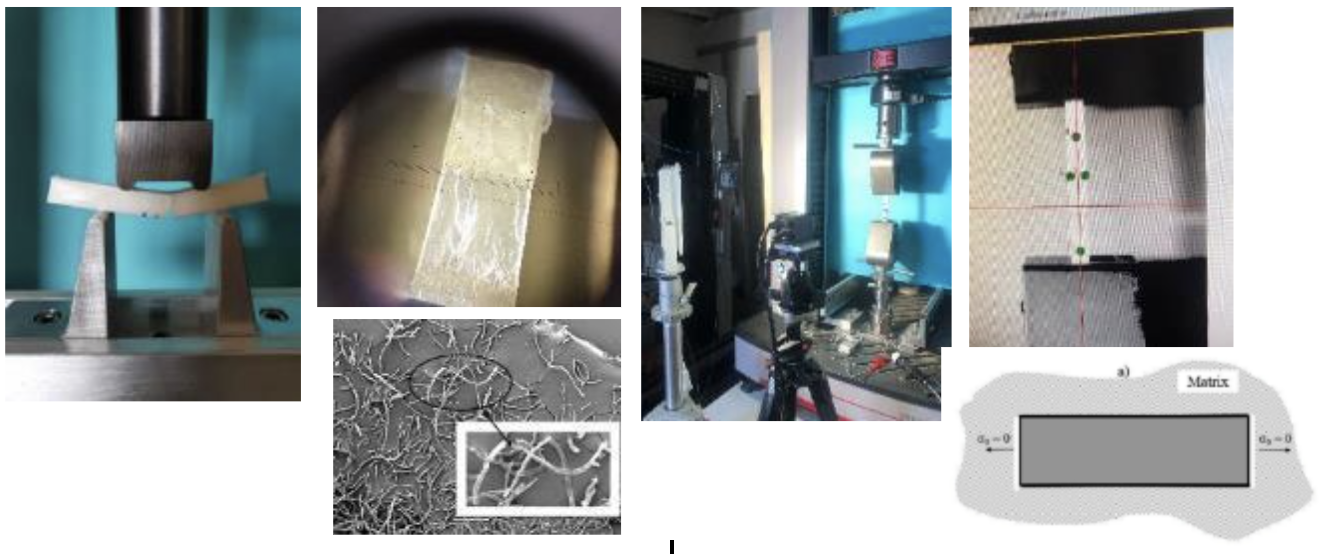
Inorganic nanostructured treatments for advanced materials and cultural heritage applications
The preparation of nano-calcite water suspension in a semi-industrial reactor and its application as consolidant in cultural heritage restoration was explored onto ancient stone monuments in the framework of an EU project (Nano-Cathedral). The surface hydrophobic treatments of nano-particles was also carried out, to expand their possible applications in advanced nanomaterials.
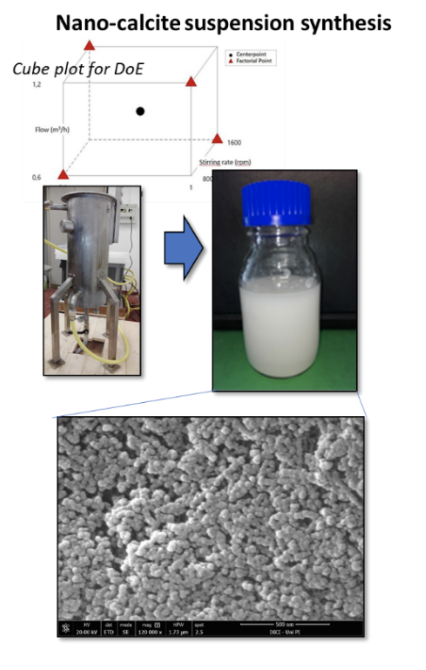
Production of Ceramic Matrix Composites (CMCs) for high temperature applications
An innovative Microwave-assisted Chemical Vapor Infiltration pilot plant has been setup for the production of SiC-based CMCs. The combination of high toughness, low density and high thermal stress resistance make these materials appealing for several demanding applications (i.e. aerospace, automotive, energy)
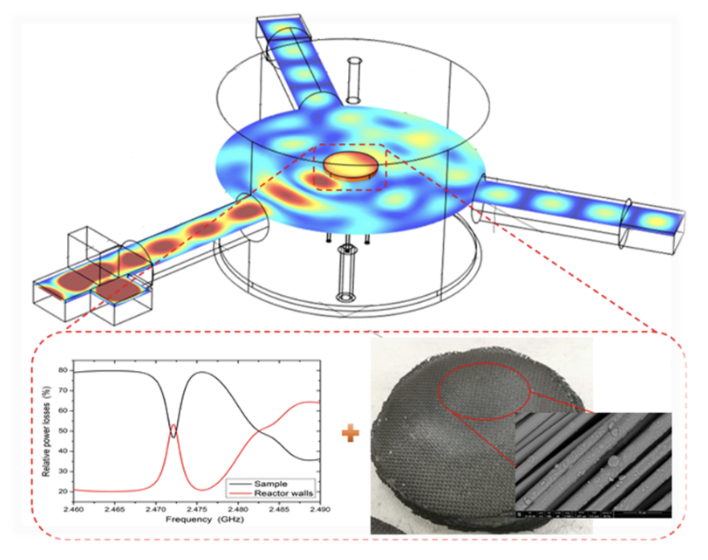
Organic biopolymeric micro and nanomaterials for healthy and safe functional surfaces and products
Specific nanomaterials like chitin nanofibrils and nanocellulose were used for surface modifications of substrates like cellulose, nanostructured tissues or bioplastics for developing functional, sustainable and biocompatible products in the packaging, personal care, sanitary and cosmetic sectors, considering also valuable renewable active molecules.
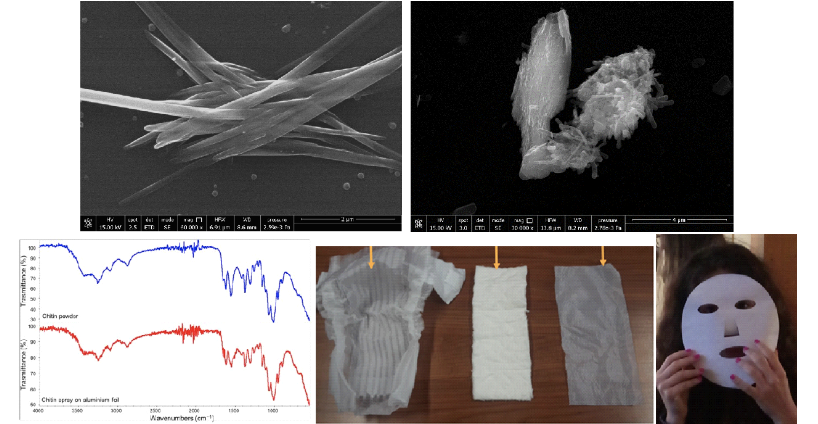
Materials for biomedical applications
Bioactive fibers/particles via electrospinning/spray
3D (bio)printing of polymeric scaffolds
Multiscale materials modeling
Biological analysis
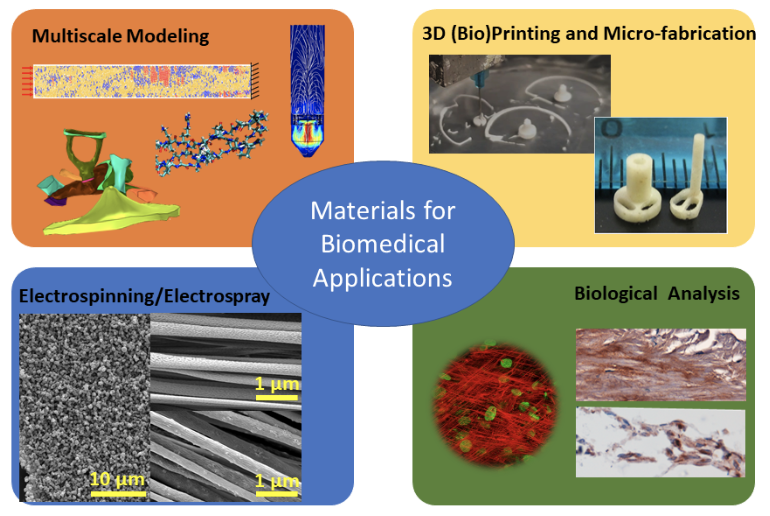
Analysis and design of materials and devices with tailored electrical and electro-mechanical properties
This research activity is focused on the study of electrical, mechanical and electro-mechanical properties in materials from all classes and by various approaches: from the design of new materials, to the analysis of their properties and the development of devices, particularly, though not exhaustively, in the fields of materials for biomedical, biomimetic and robotic applications.
